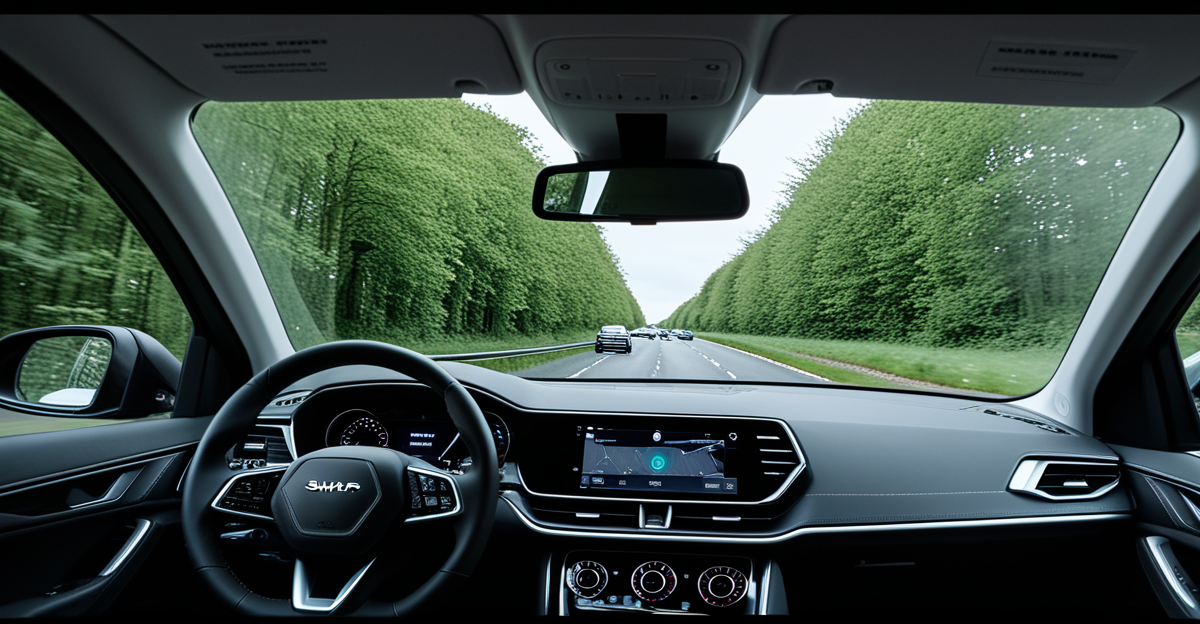Trends in UK Consumer Automotive Behavior After the Pandemic
Understanding post-pandemic automotive trends reveals significant shifts in UK consumer behavior towards vehicle ownership. The COVID-19 impact on car buying has reshaped priorities, with many buyers valuing health, safety, and flexibility more than ever before.
One notable change is an increased preference for private vehicles over public transport due to hygiene concerns, resulting in a rise in demand for both new and used cars. Consumers now prioritize vehicles equipped with advanced safety features, touchless technology, and easy maintenance. This shift reflects broader health anxieties and the desire for personal control over one’s travel environment.
Topic to read : How Can the UK Automotive Industry Innovate to Lead in Sustainability?
Data on post-pandemic car sales illustrates this trend clearly. New car purchases initially dipped during lockdowns but rebounded as restrictions eased, particularly in sectors catering to family and utility needs. Meanwhile, used car sales surged, driven by affordability concerns and supply chain delays affecting new car availability. UK buyers are also showing heightened interest in vehicles offering adaptability, such as hybrid options and models suited for both urban and rural use, highlighting their demand for flexibility.
To summarize, the post-pandemic landscape has introduced a more cautious yet pragmatic approach to car buying in the UK, emphasizing safety, versatility, and smarter investment decisions aligned with evolving lifestyle needs.
In the same genre : What Reinventions Are Leading the Charge in the UK Automotive Industry?
Digital Transformation in Automotive Sales and Services
The post-pandemic automotive trends include a marked shift towards digital car sales UK, reflecting a broader change in UK consumer behavior. With health and safety concerns heightened by COVID-19, traditional dealership visits have declined, prompting widespread adoption of online automotive retail platforms. These platforms enable consumers to browse extensive vehicle inventories, compare models, and complete purchases virtually, offering unprecedented convenience.
Consumers now expect contactless car buying experiences. This expectation has led to innovations such as contactless test drives, where prospective buyers can arrange vehicle handovers without direct interaction. Similarly, home delivery of new and used cars has become a standard offering, eliminating the need for customers to visit dealerships physically and aligning with the ongoing emphasis on health and safety.
Additionally, the integration of digital finance options simplifies the purchase process. Remote paperwork processing allows buyers to finalize agreements electronically, reducing delays and administrative burdens. This transformation caters directly to evolving UK consumer behavior, where efficiency and safety are key considerations. In this way, the COVID-19 impact on car buying has accelerated the digital reshaping of automotive sales and services, making them more accessible and aligned with modern buyer preferences.
Emphasis on Electric Vehicles and Sustainability
As part of the post-pandemic automotive trends in the UK, there is a pronounced shift towards EV adoption UK, reflecting consumers’ growing concern for eco-friendly mobility and sustainability. Rising fuel costs and stricter emissions regulations have pushed buyers to consider electric and hybrid vehicles more seriously, making sustainability a core factor in purchase decisions.
Data indicates that the demand for electric vehicles (EVs) has accelerated significantly since the pandemic began. This surge is supported by government incentives such as grants for EV purchases and investments in charging infrastructure. These incentives not only reduce upfront costs but also improve convenience, addressing common barriers to EV adoption.
Automakers are responding with expanded ranges of electric and hybrid models, aligning their product lines with sustainable automotive strategies. Manufacturers are also increasing investment in research to enhance battery life, reduce charging times, and improve vehicle range, making EVs more practical for everyday use.
To summarize the sustainability focus:
- Consumers prioritize vehicles that contribute to a reduction in carbon footprints.
- The UK government’s strategic push and incentives facilitate wider EV adoption.
- Industry efforts ensure continuous innovation towards greener technology.
This combined momentum in EV adoption UK and sustainable automotive strategies highlights a clear, lasting change in UK consumer behavior driven by the COVID-19 impact on car buying, reinforcing the importance of environmentally conscious choices.
Trends in UK Consumer Automotive Behavior After the Pandemic
Post-pandemic automotive trends reveal a clear reshaping of UK consumer behavior influenced heavily by the COVID-19 impact on car buying patterns. Buyers now prioritize health and safety features more than before, reflecting heightened sensitivity to hygienic environments during travel. This change directly affects vehicle preferences, with many seeking cars that offer not only safety but also adaptability and convenience.
Data on new and used car sales confirms these shifting preferences. While new car sales initially suffered due to pandemic restrictions, recovery has been strong, especially in models catering to family needs and multi-purpose use. Simultaneously, used car sales rose significantly as consumers sought affordable alternatives amid supply chain constraints that affected new vehicle availability.
The focus on flexibility has led consumers to value vehicles equipped with versatile features, including hybrid technology, which bridges traditional and electric mobility. This shift indicates a more pragmatic approach to ownership, where the ability to adjust to various travel conditions and budgets has become paramount.
In summary, the post-pandemic automotive trends highlight a consumer base that emphasizes health, safety, and flexibility in transportation choices, embracing a more cautious but adaptive attitude stemming from the ongoing COVID-19 impact on car buying in the UK.
Trends in UK Consumer Automotive Behavior After the Pandemic
The post-pandemic automotive trends highlight a substantial shift in UK consumer behavior shaped by the COVID-19 impact on car buying. Health concerns have catalyzed a new priority on vehicles emphasizing hygiene and safety. This has led consumers to seek cars with advanced safety systems, easy-to-clean interiors, and touchless technology, reflecting a profound change in what buyers expect from their vehicles.
Flexibility in transportation choices has also become crucial. Buyers prefer vehicles adaptable to varied lifestyles, favoring hybrids and models capable of handling both urban commuting and rural journeys. This reflects an increased demand for convenience and multi-functionality, driven by changes in work patterns and travel habits post-pandemic.
Data on new and used car sales post-COVID-19 further illustrates these behaviors. While new car purchases saw some fluctuation, models offering family-friendly features and versatility experienced notable growth. Concurrently, used car sales surged as affordability and supply chain issues influenced buying decisions. These trends underscore a pragmatic approach among UK consumers, focusing on value, safety, and adaptability.
Trends in UK Consumer Automotive Behavior After the Pandemic
Post-pandemic automotive trends have created a pronounced evolution in UK consumer behavior, largely shaped by the COVID-19 impact on car buying. Consumers now place an increased emphasis on health and safety as non-negotiable factors, influencing the choice of vehicles significantly. Cars featuring advanced filtration systems, antibacterial surfaces, and touchless technology have gained prominence, as buyers seek to minimize exposure risk during travel.
This shift is accompanied by a demand for greater flexibility in transportation options. The pandemic altered daily routines and travel habits, leading consumers to prefer vehicles that cater to diverse needs – from commuting to remote working arrangements – and that can easily adapt between urban and rural environments. Hybrid and plug-in hybrid models continue to attract attention for their balance between sustainability and practicality, aligning with changing preferences.
Examining data on new and used car sales post-COVID-19 reveals clear patterns corresponding to these behavioral shifts. New car sales have gradually recovered with a focus on multi-purpose and family-friendly models, while used car markets have expanded due to affordability concerns and ongoing supply constraints affecting new inventory. This pragmatic approach reflects a cautious UK consumer market, prioritizing value without compromising on safety and adaptability.
Overall, the ongoing COVID-19 impact on car buying has driven UK consumers to reassess priorities, resulting in a landscape where health, safety, and flexible use stand as central pillars in decision-making processes for vehicle ownership.






